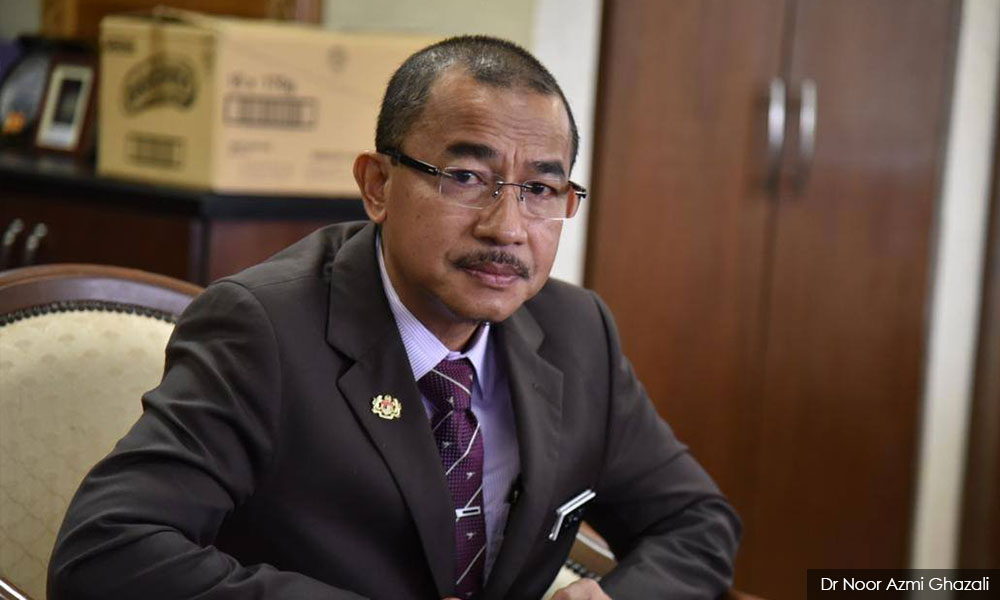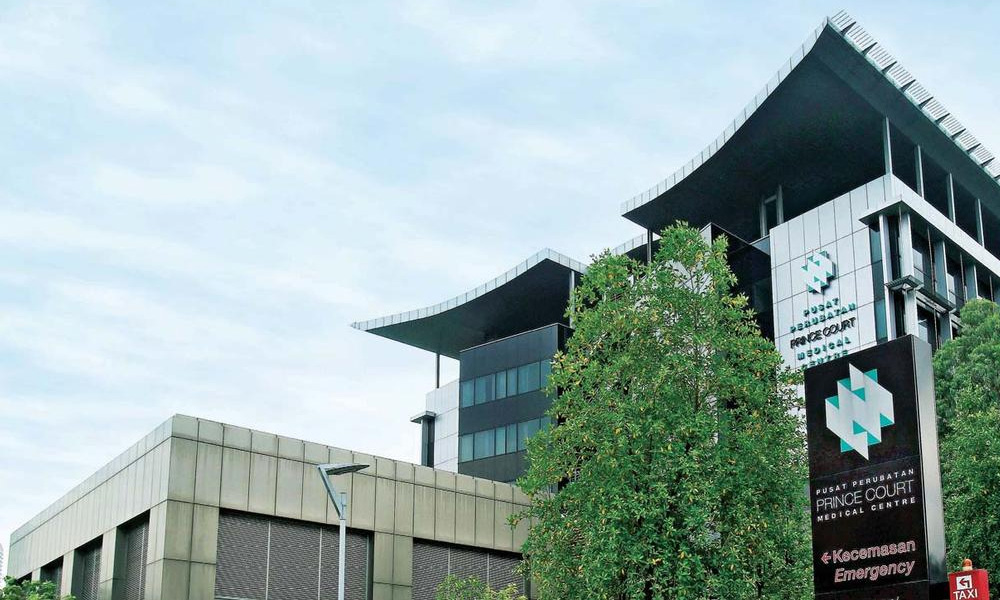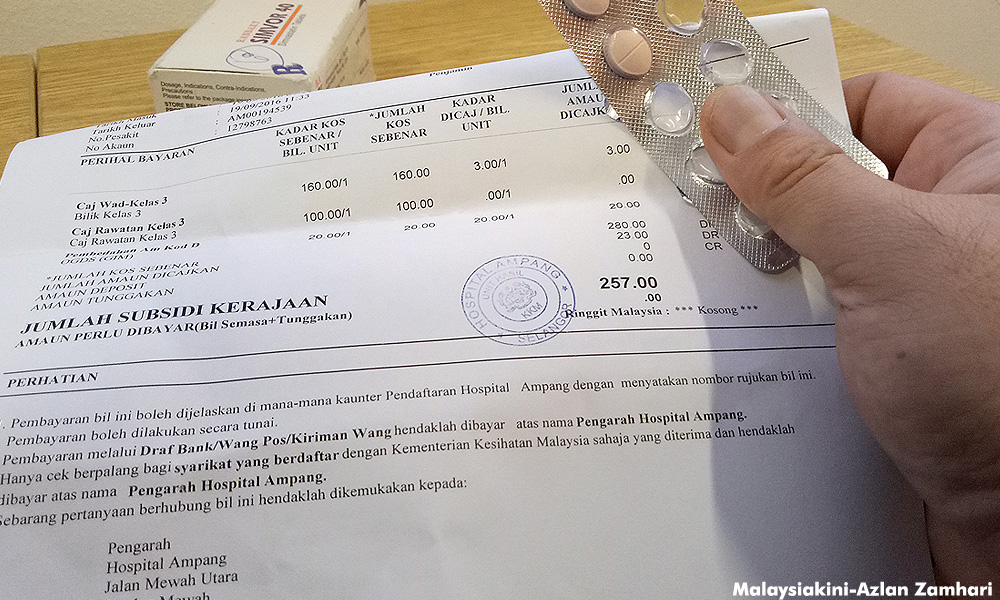Some Covid-19 patients may have to pay for private healthcare
Putrajaya has begun to engage private hospitals in a bid to rope them into the country's battle against the raging Covid-19 pandemic.
For now, it would appear that patients with the correct insurance policy or the means to pay for their own treatment will have to go to private hospitals.
Nothing is set in stone. When contacted, Health Ministry director-general Dr Noor Hisham Abdullah told Malaysiakini that negotiations with private healthcare providers are still ongoing.
It is learned that preliminary discussions between the Association of Private Hospitals Malaysia (APHM) and the federal health authority took place on Tuesday.
Among others, it was proposed that private hospitals allocate 10 percent of their normal and intensive care beds for Covid-19 patients.
A summary of Tuesday’s meeting, chaired by Deputy Health Minister Dr Noor Azmi Ghazali, has been widely shared among private healthcare providers yesterday afternoon.

Speaking to Malaysiakini, APHM president Dr Kuljit Singh confirmed that they have reached several preliminary agreements on how private hospitals would assist the Health Ministry.
Among them was that private hospitals would have to handle their patients who are diagnosed with Covid-19 virus while under their care, instead of referring them to MOH facilities.
"For the whole year in 2020, the Health Ministry has taken in all the cases on their own, including those referred by private hospitals. This was their own decision, and it was a good decision because it is one good way of containing the virus.
“Secondly, it is to adapt to the learning curve of this new virus. That is the reason why Malaysia is one of the best countries in managing the pandemic.
"Now, we have a situation where the numbers are building up very high. So, now we see 3,000 cases a day and if we calculate using basic mathematics, in just five days we will get 15,000 cases. So, definitely, the capacity of government hospitals won't be there.
"Now, the first step is that private hospitals would look after their own patients," Kuljit said.

According to Kuljit, APHM is hoping to roll out the plan as soon as possible.
The association is working with its 146 member hospitals to identify their respective capacities, as well as other technical issues in order to accommodate isolation wards for infectious disease patients.
There are 201 private hospitals in the country.
Insurance, out of pocket or MOF?
However, at this juncture, the public-private effort is also facing another problem: Who will foot the bill?
While APHM said its members are not looking into making a profit out of the pandemic, the hospitals would still have to charge in order to cover the costs and salaries of their healthcare workers.
Among the options on the table is to compel insurance companies to cover patients with medical cards, while those with the means will have to pay out of their pockets.
However, according to Kuljit, insurance companies are reluctant to pay the costs.
"Because they look at this as a pandemic and they have put a pandemic as an exclusion criterion (in their policies). Because, when they have to cover for a pandemic, they make a lot of losses. But we are urging insurance companies to reconsider.
"We are now in a pandemic. It is an emergency. They should relook into it. Insurance companies should pay as Covid-19 treatment is not expensive, only a lot of observation, oxygen supply and such. But of course, if one is admitted into the intensive care unit, the cost would be higher," Kuljit said.

As discussions are still going on between Putrajaya, private hospitals and insurance companies, the parties are also looking into patients who do not have the financial capability to foot the bills.
This comes as part of the contingency plan and includes the Health Ministry sending patients to private hospitals when government hospitals can no longer accommodate the numbers.
In this matter, Kuljit said, they have not yet reached a decision, but he agreed that no one should be denied healthcare.
"Should we reach a stage where the (Covid-19) infected do not have medical cards and there are no more beds on the government side, then maybe the Finance Ministry can have a mechanism to pay the bills."
The roping in of private hospitals, however, is not entirely on a voluntary basis.
While APHM said it is also eager to help the country, the government also has more power now that the state of emergency has been declared.
Earlier yesterday, Senior Minister Ismail Sabri Yaakob said that among the emergency measures proposed was to penalise hospitals that refuse to take in Covid-19 patients.
"If they do not agree or refuse, we can use the laws to fine the hospitals up to RM5 million, if I am not mistaken. They can even be jailed if they disagree," Ismail told a press conference.
At the time of writing, no Emergency Ordinance has been published. An ordinance is a special law that can be made by the Yang di-Pertuan Agong, without first going through Parliament. - Mkini
✍ Credit given to the original owner of this post : ☕ Malaysians Must Know the TRUTH
🌐 Hit This Link To Find Out More On Their Articles...🏄🏻♀️ Enjoy Surfing!




















Post a Comment